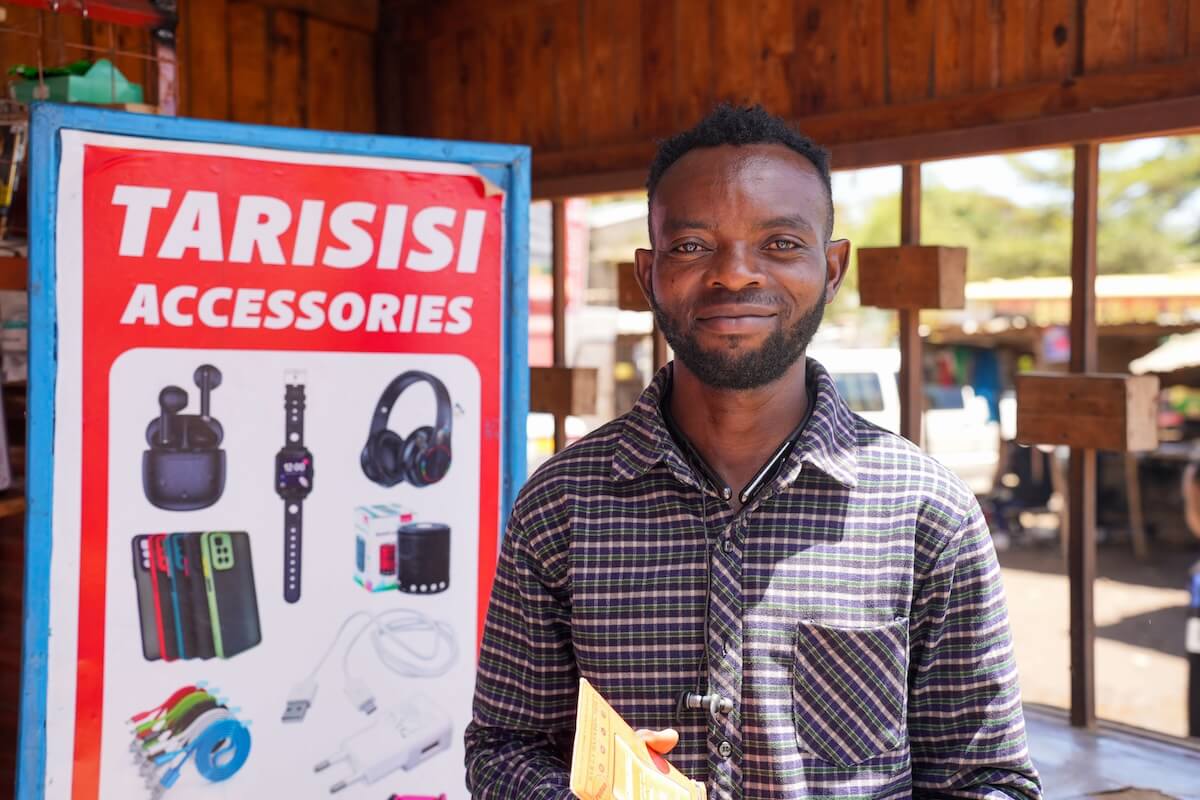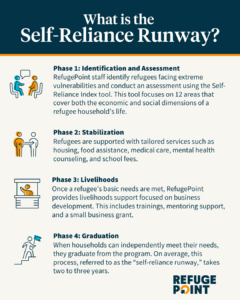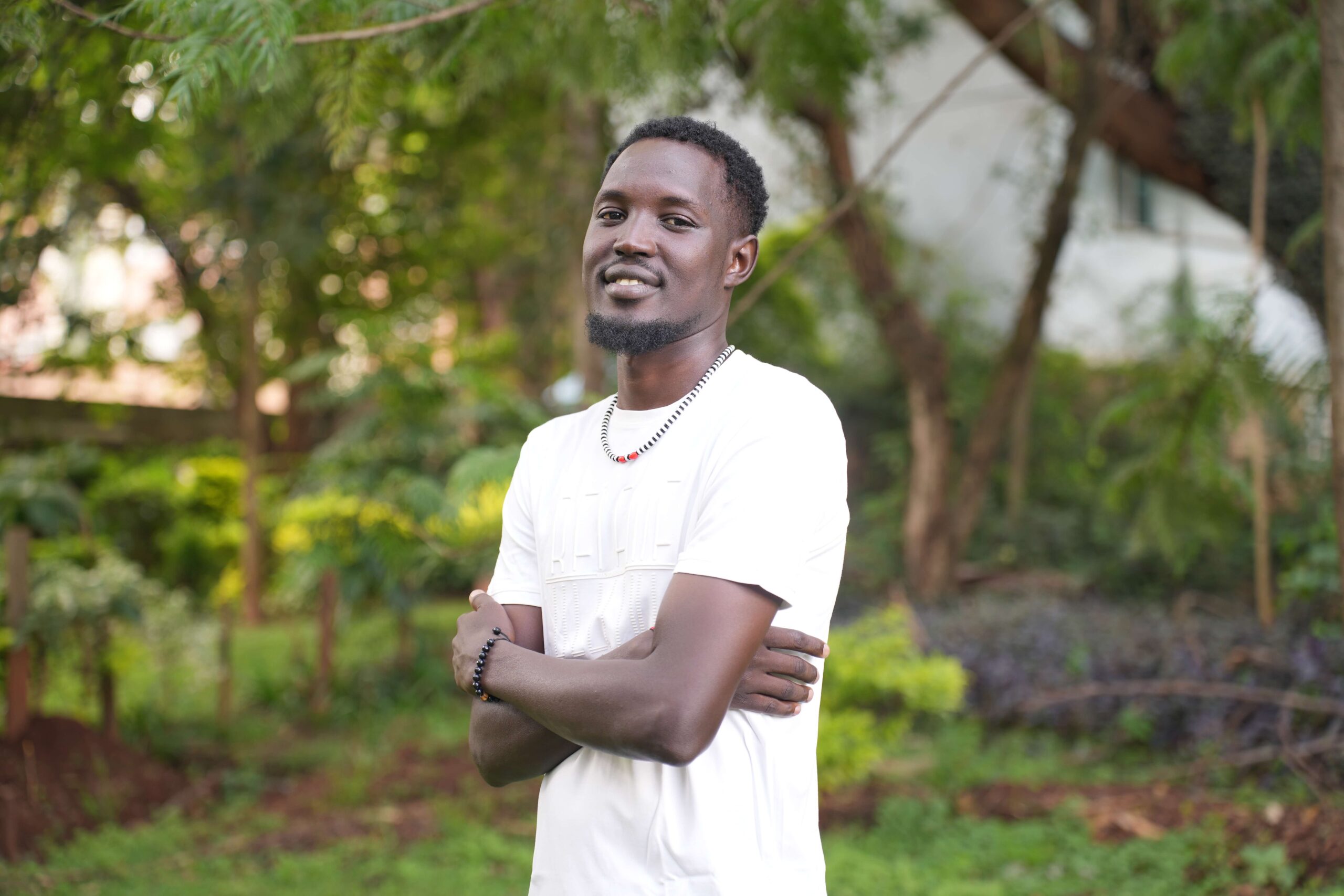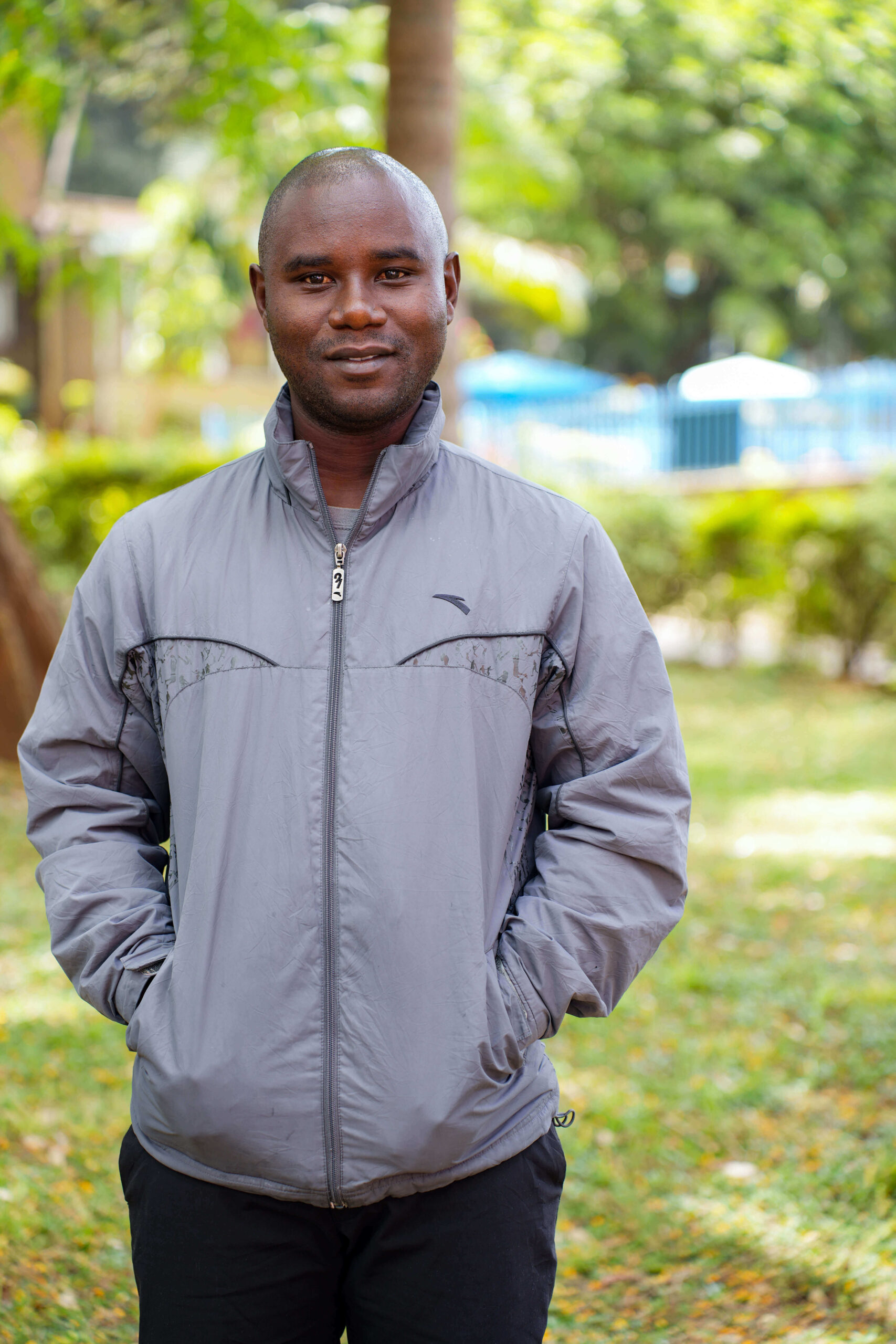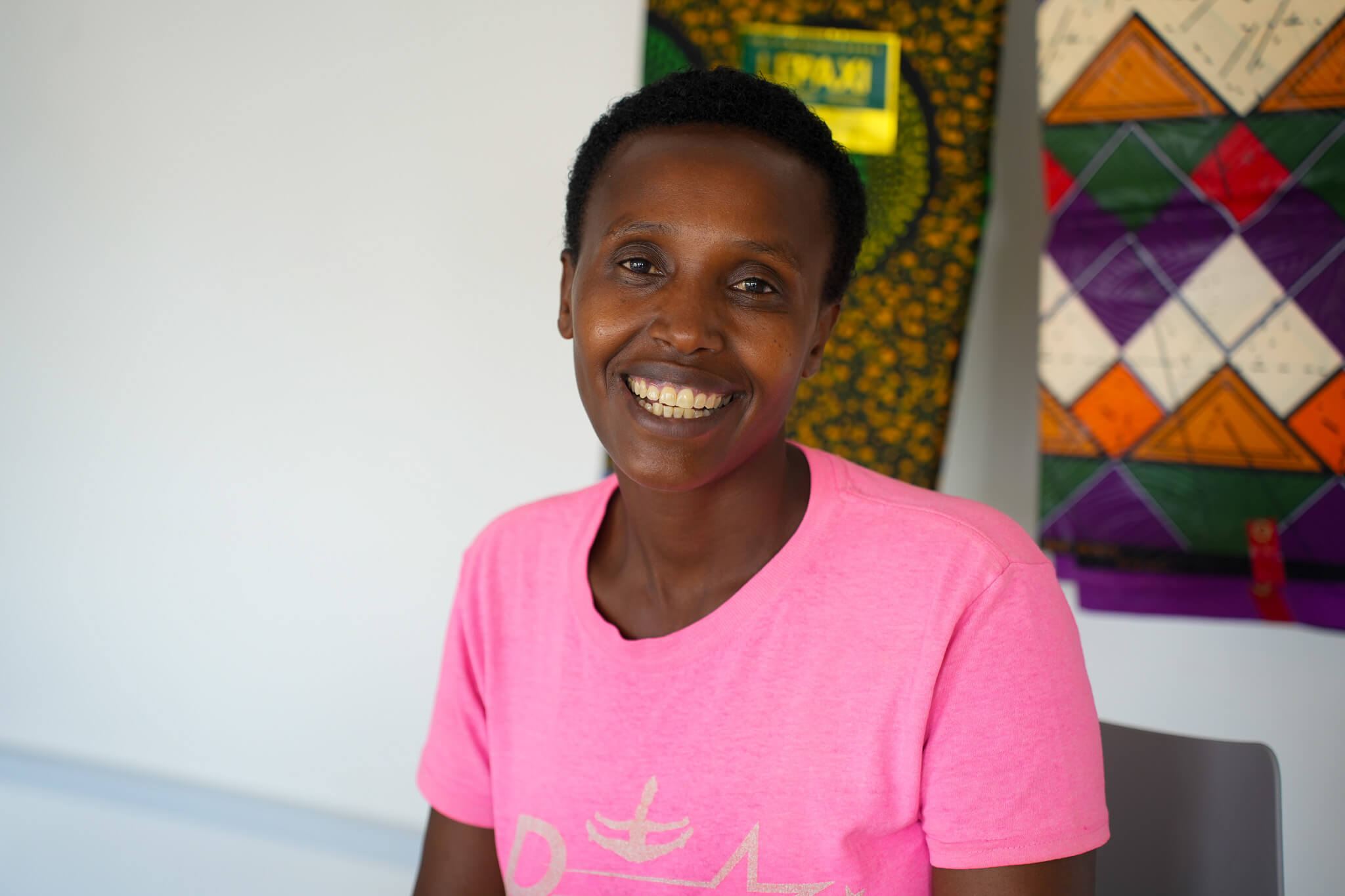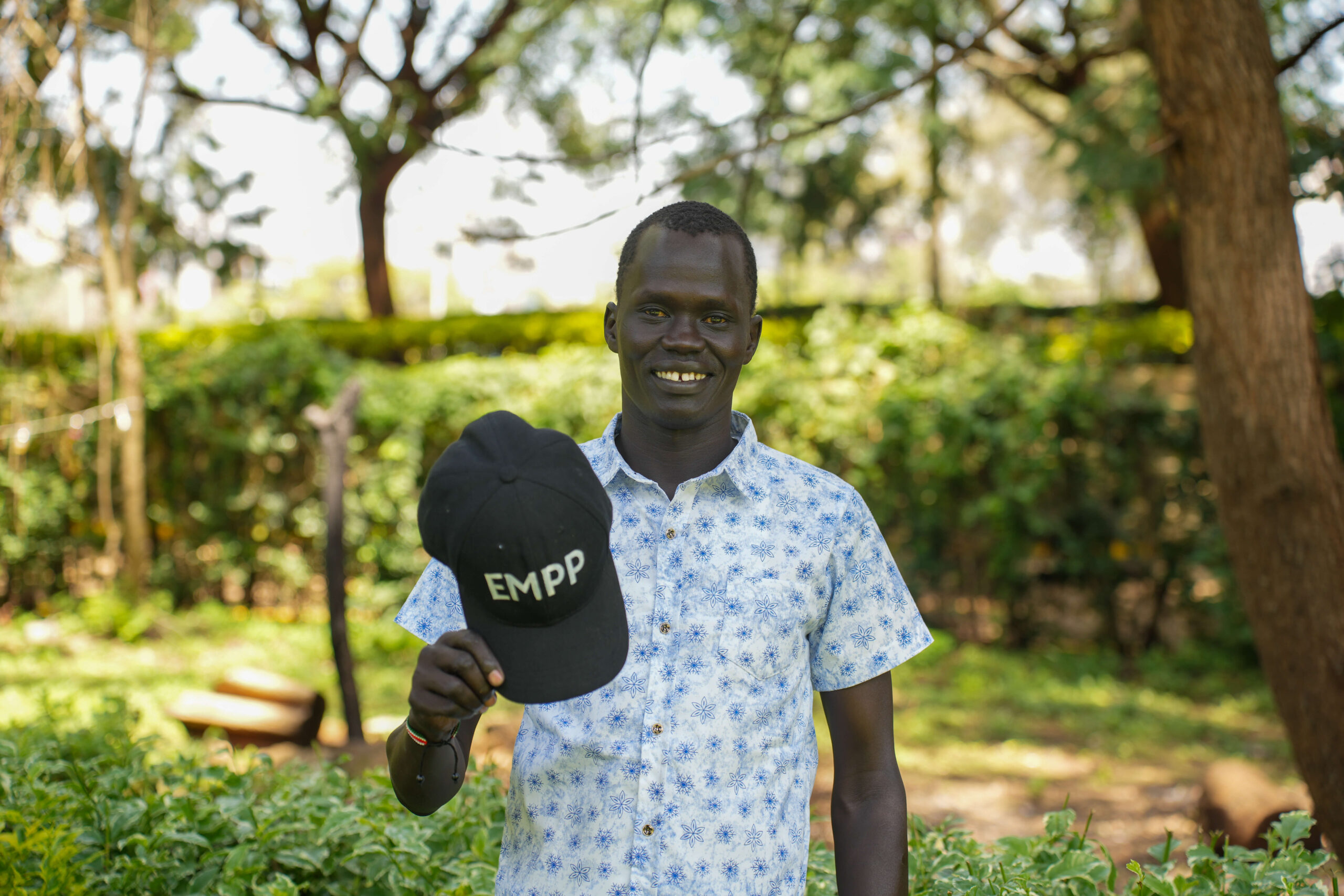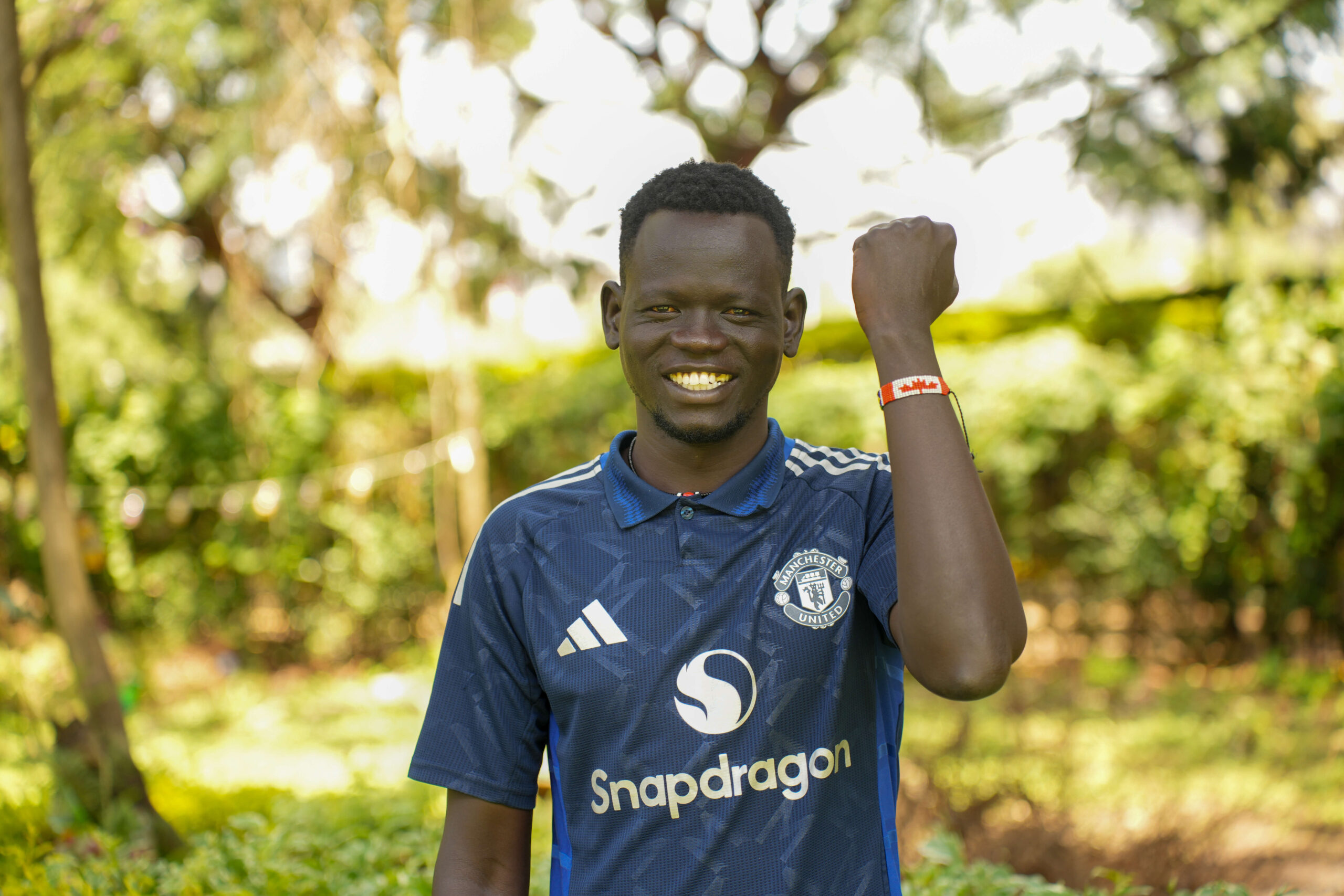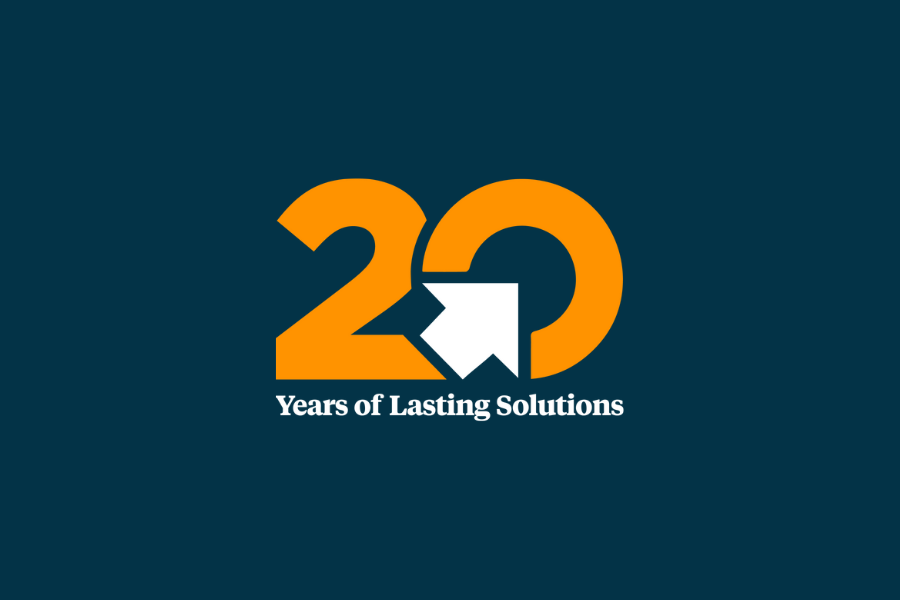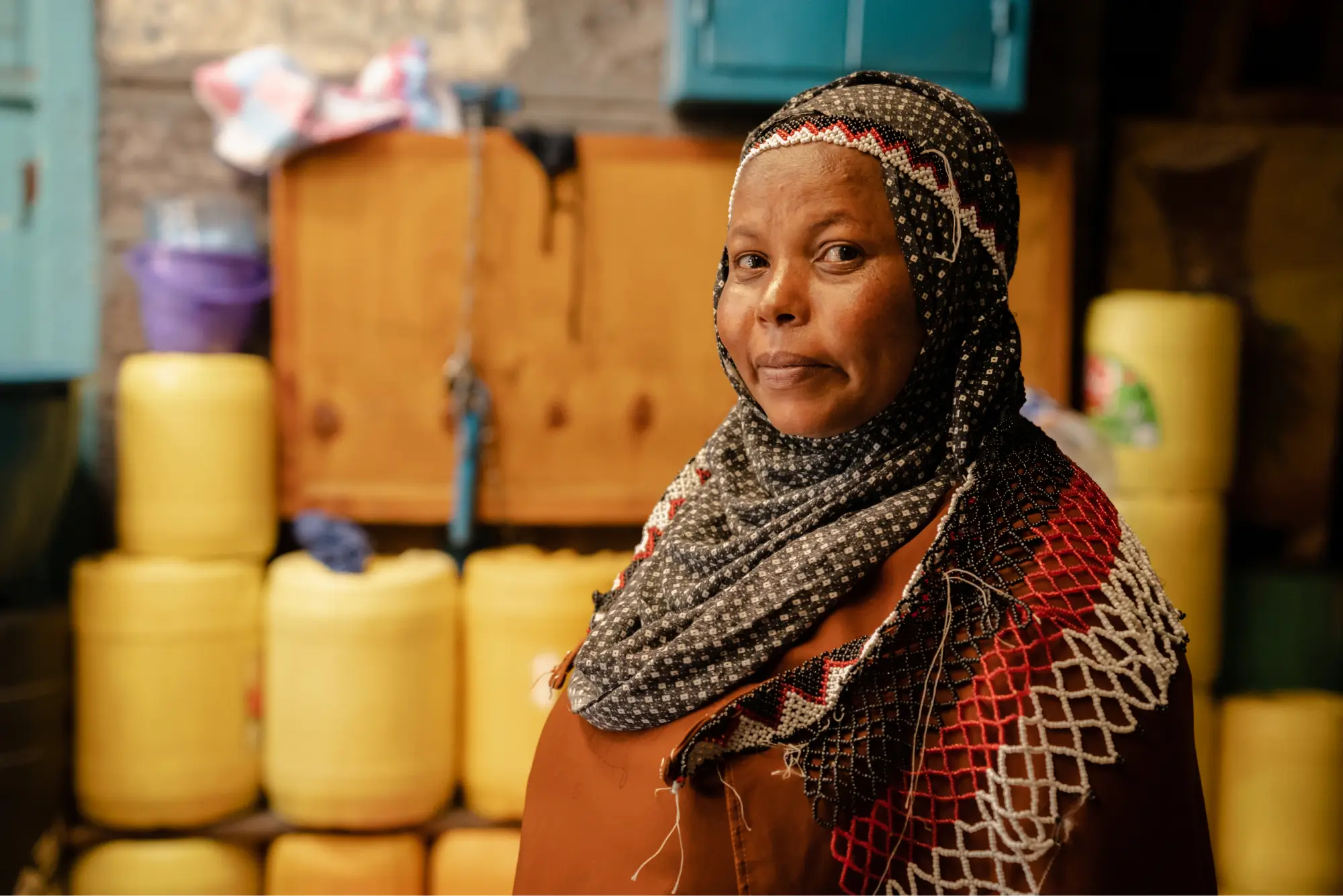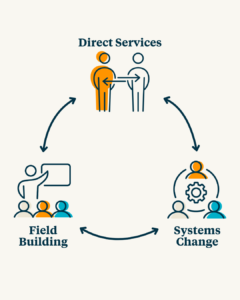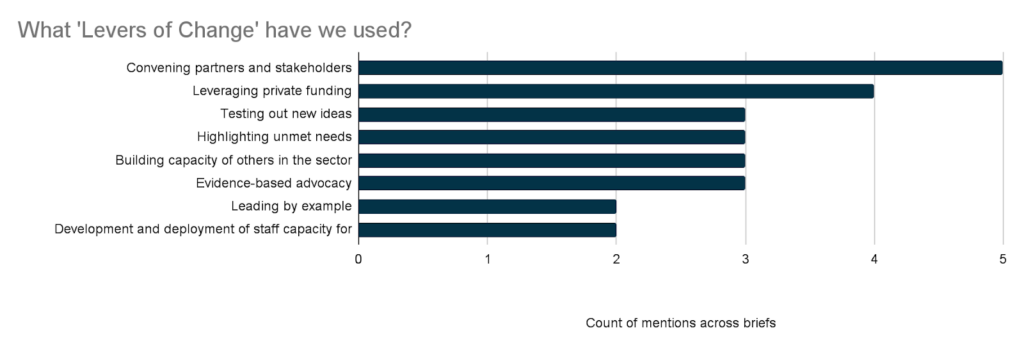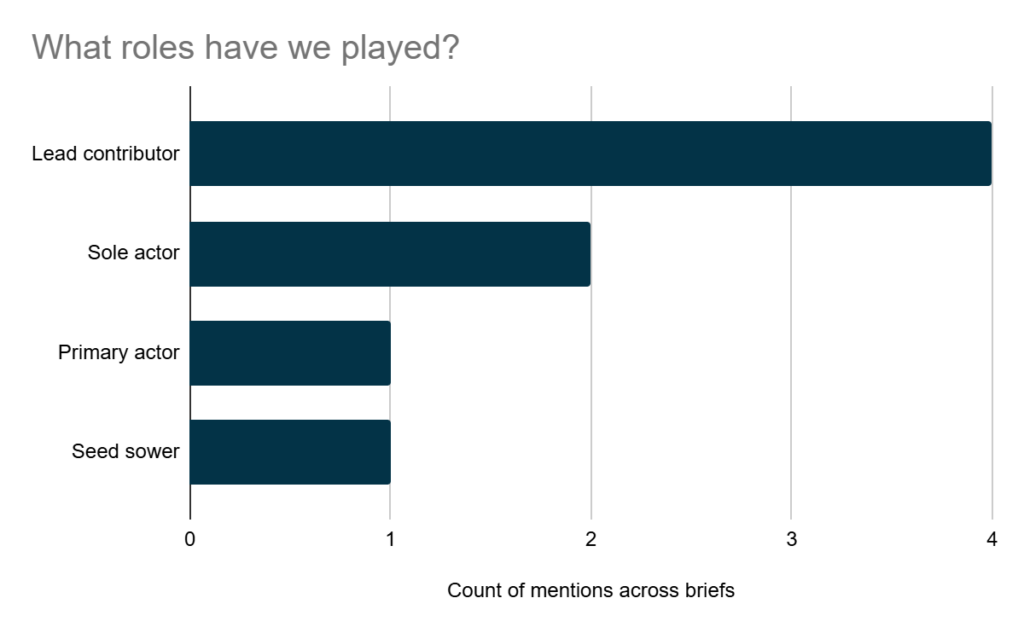Who Helps Refugees? 4 Organizations Making an Impact
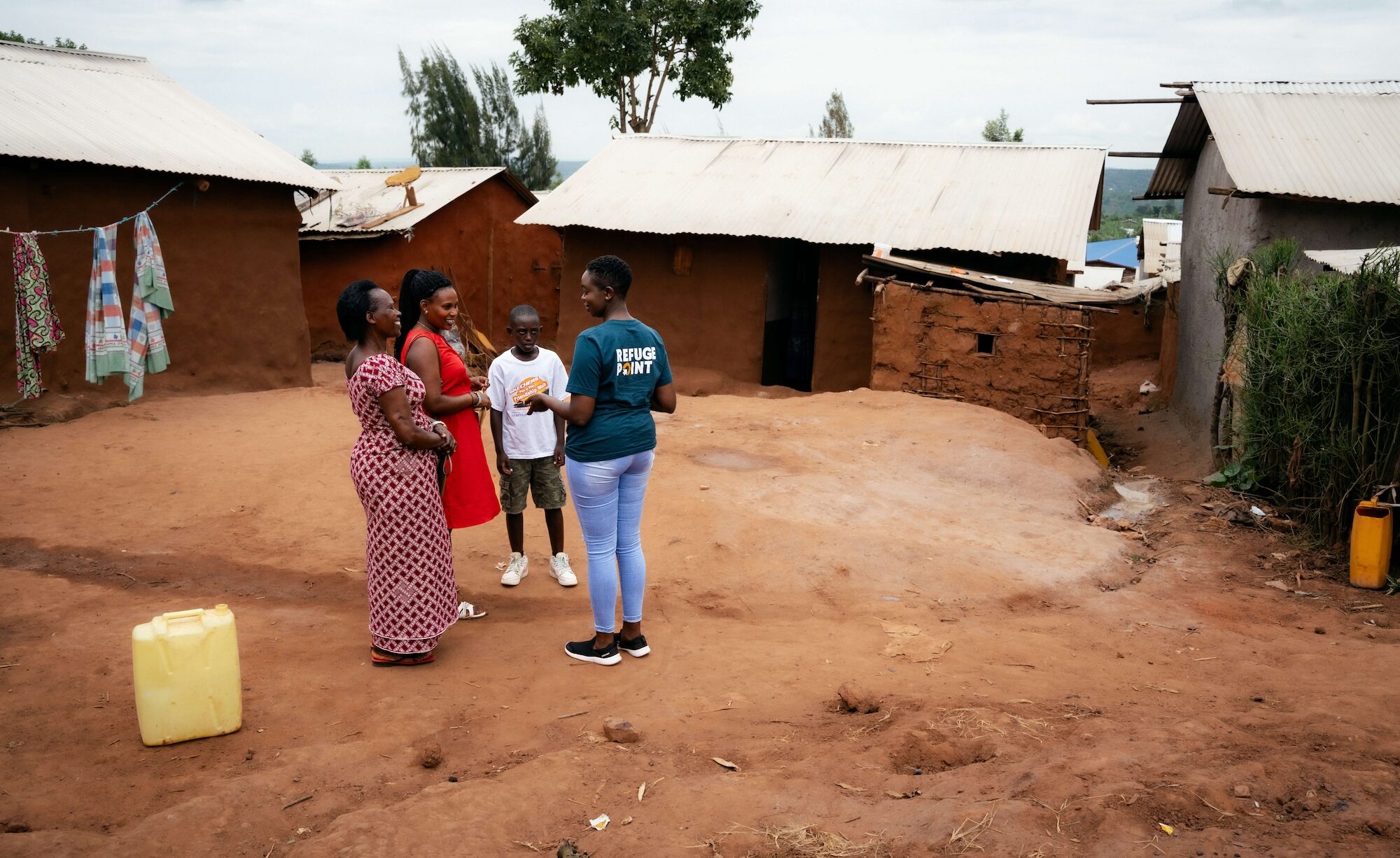
In a world where more than 120 million people have been forcibly displaced due to conflict, persecution, and human rights violations, many organizations are working tirelessly to help refugees by providing aid and support. It can be difficult to determine who helps refugees effectively and which organizations are doing the most for refugees and displaced people around the world. As a refugee-serving nonprofit that values collaboration, RefugePoint partners with other organizations—some of whom are on this list—across many of our programs. We’ve rounded up five organizations that support refugees in meaningful and unique ways.
Related: See RefugePoint’s place in the diverse field of refugee response
1. RefugePoint
Unlike organizations focusing solely on emergency relief, RefugePoint partners with refugees to find lasting solutions. Through our self-reliance program, we help refugees reach stability, build social and economic capital, and engage in dignified livelihoods in the countries to which they have fled so they can meet their own essential needs as an important step towards integration or other solutions. We also help refugees around the world permanently relocate to safe, new countries to rebuild their lives, either via resettlement or other pathways to safety such as family reunification and labor mobility.
Our innovative strategies have directly impacted the lives of over 180,000 refugees, making RefugePoint a top choice for those seeking to support refugees in meaningful ways.
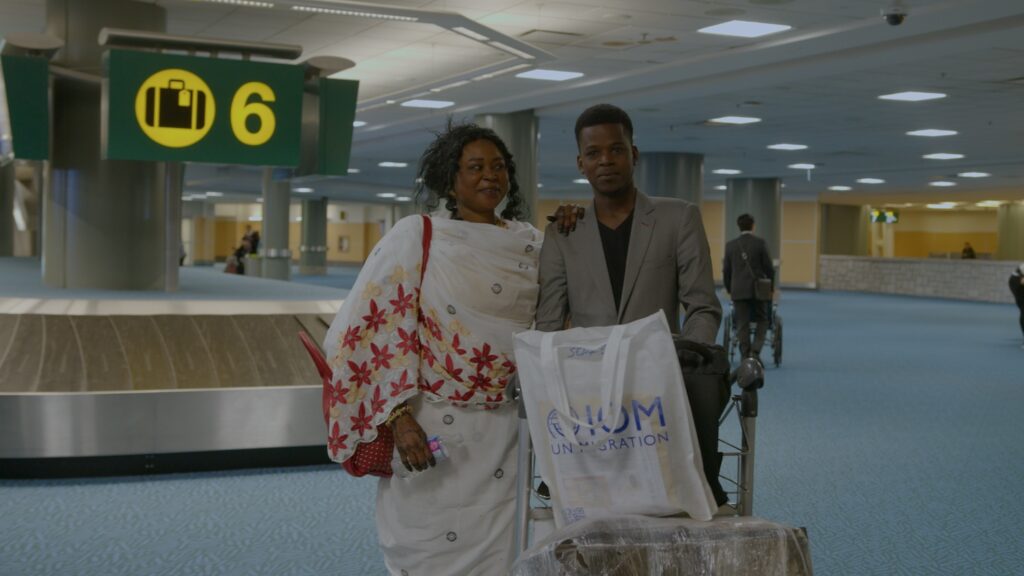 Watch: A refugee mother and son reunite after 7 years apart
Watch: A refugee mother and son reunite after 7 years apart
2. International Refugee Assistance Project (IRAP)
The International Refugee Assistance Project (IRAP) helps refugees by focusing on providing legal aid to refugees and displaced persons and improving refugee laws and policies. IRAP’s team of lawyers and advocates work to secure safe passage, legal status, and resettlement for refugees facing legal obstacles. Their mission is to ensure that refugees receive the protection and legal rights they deserve, making a profound impact on their safety and future. Using the knowledge gained from working directly with refugees, IRAP advocates for systemic improvements and initiates precedent-setting litigation to challenge refugee rights violations.
RefugePoint works hand-in-hand with IRAP, HIAS (below), UNHCR, and the U.S. Department of State to expand access to resettlement for refugees in precarious situations around the world.
3. HIAS
HIAS, founded in 1903, is an organization dedicated to creating a world where refugees find welcome, safety, and opportunity. With offices throughout the world, they help refugees by offering a range of services including legal protection, resettlement, economic inclusion, and integration programs. HIAS is a strong and influential voice in advocating for the rights of refugees and asylum seekers in the U.S. and globally. HIAS’s longstanding commitment to supporting refugees underscores their value in the world of refugee response.
HIAS and RefugePoint have long collaborated on expanding the role of NGOs in identifying and referring refugees for resettlement. As both organizations have offices in Nairobi, HIAS and RefugePoint collaborate closely on refugee solutions in Kenya.
4. Youth Voices Community (YVC)
One of the most effective ways to help refugees is by empowering refugees themselves to tell us what they need and how best to serve them. Refugee-Led Organizations (RLOs) are one powerful tool for helping refugees because they are the most integrated within refugee communities and able to provide on-the-ground support in a way that Global North-led organizations cannot. Youth Voices Community (YVC) is an RLO based in Nairobi, Kenya, that aims to build awareness of the experiences of refugee children and young adults while also developing their self-reliance. YVC’s mission is to give a voice to refugee and local youths experiencing vulnerabilities by helping them share their stories, building their capacity to thrive, and engaging in advocacy.
In a program funded by RefugePoint, YVC rolled out an Entrepreneurship & Financial Skills Training program aimed to empower women refugees in Nairobi with essential skills to establish and manage businesses successfully. YVC selected 30 women aged 18-35 with basic tailoring skills and proficiency in reading and writing who were taken through comprehensive entrepreneurship training. Upon completion of the training, the women were each issued a sewing machine to help them begin their income journey. The women report that receiving entrepreneurship training and the sewing machine has brought them a step closer to attaining self-reliance. YVC continues to offer business mentorship and monitoring to this cohort.
 Members of RefugePoint, Youth Voices Community, and graduates of the first tailoring program pose with one of the sewing machines awarded to the graduates.
Members of RefugePoint, Youth Voices Community, and graduates of the first tailoring program pose with one of the sewing machines awarded to the graduates.
Ways to Help Refugees
Organizations like RefugePoint, IRAP, HIAS, Community Sponsorship Hub, and Youth Voices Community each play a unique and crucial role in helping refugees. These organizations are each making a tangible impact on the lives of refugees, and through collaboration, the impact multiplies. By supporting them, you can contribute to the global effort to provide safety, hope, and opportunities for refugees.
*Author’s note: Brief descriptions of these organizations cannot wholly encompass the breadth of programs and services that are offered. We’ve linked to each org’s website and encourage you to visit each page to learn more.
By Alison Pappavaselio, RefugePoint
Cover photo: A RefugePoint Expert walks with refugee clients in Rwanda. Chris Jensen, RefugePoint

In a world where more than 120 million people have been forcibly displaced due to conflict, persecution, and human rights violations, many organizations are working tirelessly to help refugees by providing aid and support. It can be difficult to determine who helps refugees effectively and which organizations are doing the most for refugees and displaced people around the world. As a refugee-serving nonprofit that values collaboration, RefugePoint partners with other organizations—some of whom are on this list—across many of our programs. We’ve rounded up five organizations that support refugees in meaningful and unique ways.
Related: See RefugePoint’s place in the diverse field of refugee response
1. RefugePoint
Unlike organizations focusing solely on emergency relief, RefugePoint partners with refugees to find lasting solutions. Through our self-reliance program, we help refugees reach stability, build social and economic capital, and engage in dignified livelihoods in the countries to which they have fled so they can meet their own essential needs as an important step towards integration or other solutions. We also help refugees around the world permanently relocate to safe, new countries to rebuild their lives, either via resettlement or other pathways to safety such as family reunification and labor mobility.
Our innovative strategies have directly impacted the lives of over 180,000 refugees, making RefugePoint a top choice for those seeking to support refugees in meaningful ways.
 Watch: A refugee mother and son reunite after 7 years apart
Watch: A refugee mother and son reunite after 7 years apart
2. International Refugee Assistance Project (IRAP)
The International Refugee Assistance Project (IRAP) helps refugees by focusing on providing legal aid to refugees and displaced persons and improving refugee laws and policies. IRAP’s team of lawyers and advocates work to secure safe passage, legal status, and resettlement for refugees facing legal obstacles. Their mission is to ensure that refugees receive the protection and legal rights they deserve, making a profound impact on their safety and future. Using the knowledge gained from working directly with refugees, IRAP advocates for systemic improvements and initiates precedent-setting litigation to challenge refugee rights violations.
RefugePoint works hand-in-hand with IRAP, HIAS (below), UNHCR, and the U.S. Department of State to expand access to resettlement for refugees in precarious situations around the world.
3. HIAS
HIAS, founded in 1903, is an organization dedicated to creating a world where refugees find welcome, safety, and opportunity. With offices throughout the world, they help refugees by offering a range of services including legal protection, resettlement, economic inclusion, and integration programs. HIAS is a strong and influential voice in advocating for the rights of refugees and asylum seekers in the U.S. and globally. HIAS’s longstanding commitment to supporting refugees underscores their value in the world of refugee response.
HIAS and RefugePoint have long collaborated on expanding the role of NGOs in identifying and referring refugees for resettlement. As both organizations have offices in Nairobi, HIAS and RefugePoint collaborate closely on refugee solutions in Kenya.
4. Youth Voices Community (YVC)
One of the most effective ways to help refugees is by empowering refugees themselves to tell us what they need and how best to serve them. Refugee-Led Organizations (RLOs) are one powerful tool for helping refugees because they are the most integrated within refugee communities and able to provide on-the-ground support in a way that Global North-led organizations cannot. Youth Voices Community (YVC) is an RLO based in Nairobi, Kenya, that aims to build awareness of the experiences of refugee children and young adults while also developing their self-reliance. YVC’s mission is to give a voice to refugee and local youths experiencing vulnerabilities by helping them share their stories, building their capacity to thrive, and engaging in advocacy.
In a program funded by RefugePoint, YVC rolled out an Entrepreneurship & Financial Skills Training program aimed to empower women refugees in Nairobi with essential skills to establish and manage businesses successfully. YVC selected 30 women aged 18-35 with basic tailoring skills and proficiency in reading and writing who were taken through comprehensive entrepreneurship training. Upon completion of the training, the women were each issued a sewing machine to help them begin their income journey. The women report that receiving entrepreneurship training and the sewing machine has brought them a step closer to attaining self-reliance. YVC continues to offer business mentorship and monitoring to this cohort.
 Members of RefugePoint, Youth Voices Community, and graduates of the first tailoring program pose with one of the sewing machines awarded to the graduates.
Members of RefugePoint, Youth Voices Community, and graduates of the first tailoring program pose with one of the sewing machines awarded to the graduates.
Ways to Help Refugees
Organizations like RefugePoint, IRAP, HIAS, Community Sponsorship Hub, and Youth Voices Community each play a unique and crucial role in helping refugees. These organizations are each making a tangible impact on the lives of refugees, and through collaboration, the impact multiplies. By supporting them, you can contribute to the global effort to provide safety, hope, and opportunities for refugees.
*Author’s note: Brief descriptions of these organizations cannot wholly encompass the breadth of programs and services that are offered. We’ve linked to each org’s website and encourage you to visit each page to learn more.
By Alison Pappavaselio, RefugePoint
Cover photo: A RefugePoint Expert walks with refugee clients in Rwanda. Chris Jensen, RefugePoint

